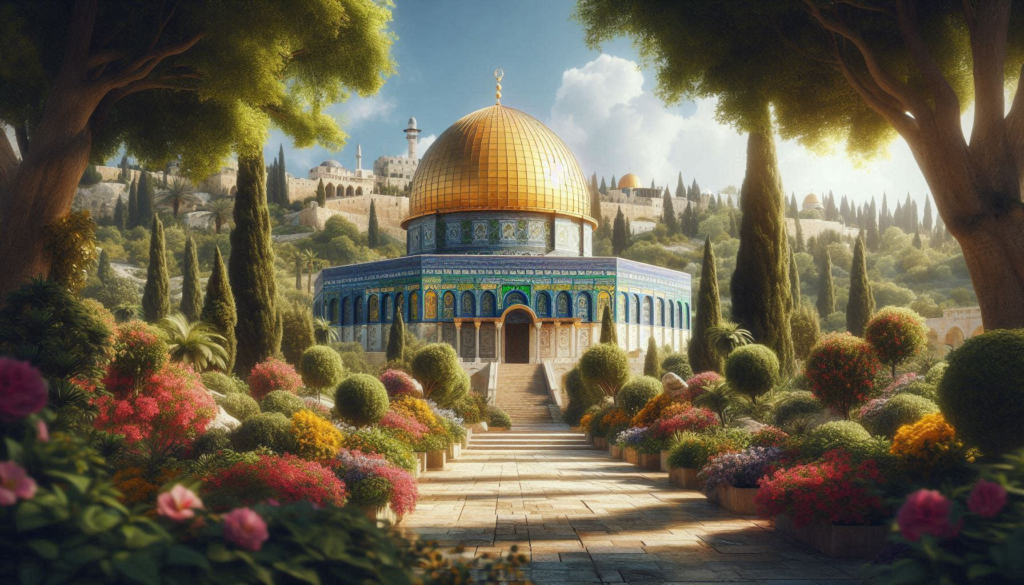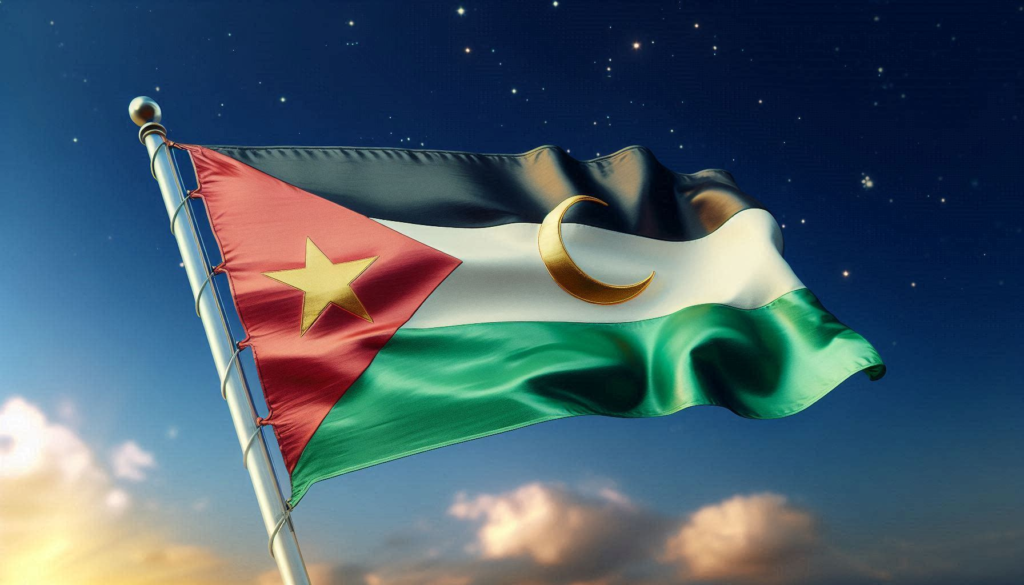Palestine : A Land of Struggle, History and Hope
Palestine, a land imbued with rich history and cultural significance, is at the heart of one of the most enduring and complex conflicts in modern history. The story of Palestine is one of ancient civilizations, religious importance, political upheaval, and the ongoing struggle for statehood and peace. This blog delves into the multifaceted narrative of Palestine, exploring its historical roots, the impact of the Israeli-Palestinian conflict, and the resilient spirit of its people.

Historical Roots and Significance
Palestine’s history stretches back thousands of years, making it one of the world’s most ancient inhabited regions. Located in the eastern Mediterranean, it has been a crossroads for various civilizations, including the Canaanites, Egyptians, Israelites, Babylonians, Persians, Greeks, Romans, Byzantines, Arabs, and Ottomans. Each of these cultures has left an indelible mark on the region, contributing to its rich and diverse heritage.
Ancient Times
The earliest known inhabitants of Palestine were the Canaanites, a Semitic people who settled in the region around 3000 BCE. The area later became the site of significant biblical events, including the kingdom of Israel under kings Saul, David, and Solomon. Jerusalem, one of has been a focal point for Judaism, Christianity, and Islam the holiest cities in the world.
Islamic and Ottoman Periods
In the 7th century CE, Palestine was conquered by Muslim Arab forces, leading to the spread of Islam and the establishment of the Umayyad and Abbasid Caliphates. The region flourished culturally and economically, becoming an integral part of the Islamic world. The Ottoman Empire’s control from the early 16th century until World War I brought relative stability to Palestine, which became a melting pot of different ethnic and religious communities.
The Mandate Period and the Birth of the Conflict
The end of World War I and the collapse of the Ottoman Empire marked a turning point for Palestine. The British took control under the mandate system established by the League of Nations, and the Balfour Declaration of 1917 promised the establishment of a “national home for the Jewish people” in Palestine. This declaration laid the groundwork for future conflicts, as it was seen by the Arab population as a threat to their aspirations for self-determination.
Rise of Nationalism
During the British Mandate period (1920-1948), Jewish immigration to Palestine increased significantly, fueled by the Zionist movement and the dire situation of Jews in Europe, particularly during and after the Holocaust. This demographic shift led to growing tensions between Jewish and Arab communities, resulting in frequent clashes and violence.
The Independence and UN Partition Plan of Israel
In 1947, Arab states and the United Nations proposed a partition plan to create separate Jewish, with Jerusalem as an international city. The Jewish community accepted the plan, but the Arab states and Palestinian Arabs rejected it, leading to the outbreak of the 1948 Arab-Israeli War. Following the war, Israel declared independence, while the West Bank and Gaza Strip were controlled by Jordan and Egypt, respectively.
The Israeli- Palestinian Conflict
The aftermath of the 1948 war marked the beginning of the prolonged Israeli-Palestinian conflict. Hundreds of thousands of Palestinians were displaced, creating a refugee crisis that persists to this day. The Six-Day War of 1967 further altered the landscape, with Israel occupying the West Bank, Gaza Strip, East Jerusalem, and the Golan Heights.

Occupation and Intifadas
The Israeli occupation of Palestinian territories has been a central issue in the conflict. The first Intifada (1987-1993) was a mass uprising by Palestinians against Israeli rule, characterized by widespread protests and civil disobedience. It eventually led to the Oslo Accords, which aimed to establish a framework for peace and the creation of a Palestinian state. However, the failure to achieve a lasting resolution led to the second Intifada (2000-2005), marked by increased violence and casualties on both sides.
The Gaza Strip and West Bank
The West Bank and Gaza Strip remain focal points of the conflict. The Gaza Strip, governed by Hamas since 2007, has faced repeated military operations and a blockade by Israel, leading to severe humanitarian crises. The West Bank, administered by the Palestinian Authority, continues to experience Israeli settlement expansion, military incursions, and restrictions on movement, further complicating the prospects for peace.
Humanitarian and Social Impact
The prolonged conflict has had devastating humanitarian and social consequences for Palestinians. The blockade of Gaza has resulted in widespread poverty, unemployment, and limited access to basic services such as healthcare and education. In the West Bank, checkpoints, the separation barrier, and restrictions on movement have disrupted daily life and economic activities.
Refugee Crisis
The Palestinian refugee crisis is one of the longest-standing and most complex refugee situations in the world. in refugee camps in the West Bank, Gaza, Lebanon, Jordan, and Syria Millions of Palestinians live. These camps often lack adequate infrastructure and services, creating challenging living conditions for the residents.
Human Rights Concerns
Both Palestinians and Israelis have faced significant human rights violations throughout the conflict. Palestinians frequently report issues such as arbitrary arrests, detention without trial, and excessive use of force by Israeli security forces. On the other hand, Israelis have faced terrorist attacks, rocket fire, and other forms of violence from militant groups.
The Peace Process and International Efforts
Numerous attempts have been made to resolve the Israeli-Palestinian conflict, with varying degrees of success and failure. The Oslo Accords, the Camp David Summit, the Roadmap for Peace, and the Annapolis Conference are just a few examples of initiatives aimed at achieving a two-state solution.
Oslo Accords
The Oslo Accords, signed in the early 1990s, were a landmark moment in the peace process. They established the Palestinian Authority and called for the withdrawal of Israeli forces from parts of the West Bank and Gaza Strip. Despite initial optimism, the accords ultimately failed to bring about a lasting peace due to ongoing disagreements and violations by both sides.
Recent Developments
In recent years, the peace process has stalled, with both Israeli and Palestinian leadership facing internal and external challenges. The United States’ recognition of Jerusalem as Israel’s capital in 2017 and the subsequent relocation of the US embassy heightened tensions. The Abraham Accords, which normalized relations between Israel and several Arab countries, have also shifted regional dynamics, although they have not directly addressed the core issues of the Israeli-Palestinian conflict.
The Resilience of the Palestinian People
Despite the hardships and challenges, the Palestinian people have demonstrated remarkable resilience and determination. Palestine sense and cultural heritage, traditions of identity have been sources of strength in the face of adversity.
Cultural Heritage and Identity
Palestinian culture is a rich tapestry of traditions, arts, and customs. From the vibrant Dabke dance to the intricate embroidery of traditional dresses, Palestinian cultural expressions reflect the community’s deep-rooted connection to their land and history. Palestinian cuisine, with its diverse flavors and dishes such as falafel, hummus, and maqluba, also plays a significant role in preserving cultural identity.
Education and Innovation
Palestinian society, education is highly valued in and despite the challenges, many Palestinians have excelled professionally and academically. Universities and educational institutions in the West Bank and Gaza continue to produce graduates who contribute to various fields, including science, technology, and the arts. Palestinian entrepreneurs and innovators are also making strides, developing startups and projects that address local and global challenges.
The Path Forward: Challenges and Hopes
The path to a peaceful and just resolution to the Israeli-Palestinian conflict remains fraught with challenges, but there are reasons for hope. Grassroots movements, international advocacy, and diplomatic efforts continue to push for dialogue, understanding, and compromise.
Grassroots Movements and Civil Society
Grassroots movements and civil society organizations play a crucial role in fostering dialogue and promoting peace. Initiatives such as the Parents Circle-Families Forum, which brings together bereaved Israeli and Palestinian families, demonstrate the potential for reconciliation and mutual understanding. These efforts highlight the shared humanity and desire for peace among ordinary people on both sides.
International Advocacy and Support
The international community has a vital role to play in supporting a just resolution to the conflict. Diplomatic efforts, humanitarian aid, and advocacy for human rights are essential components of the global response. Organizations such as the United Nations, the European Union, and various NGOs continue to work towards alleviating the suffering of Palestinians and promoting a sustainable peace.
Future Prospects
The future of Palestine and the resolution of the Israeli-Palestinian conflict depend on the willingness of both sides to engage in meaningful dialogue and make difficult compromises. A two-state solution, with mutually agreed borders and security arrangements, remains a widely supported framework for achieving peace.
Conclusion
The story of Palestine is one of profound history, enduring struggle, and unyielding hope. Despite the challenges and adversities faced by the Palestinian people, their resilience and determination continue to inspire. The path to peace may be arduous, but with concerted efforts from both sides and the international community, a just and lasting resolution is possible. The journey of Palestine is a testament to the strength of the human spirit and the enduring quest for dignity, justice, and peace.



